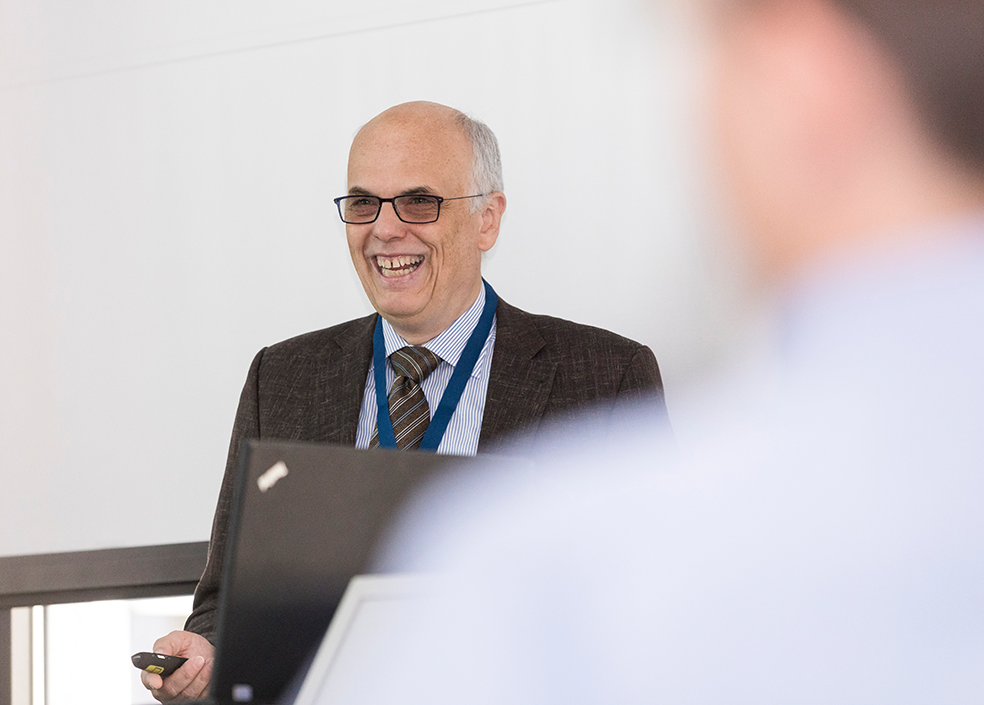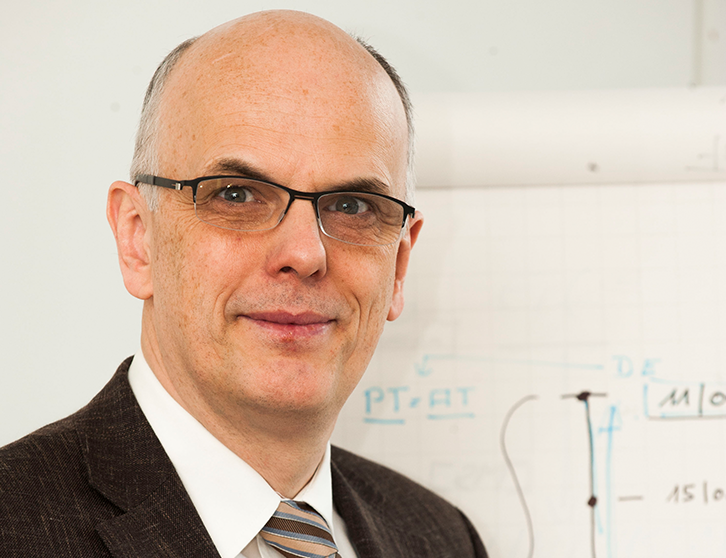Published on April 08, 2021
Professions in technology transfer: Patent Assessor
Two professional fields of technology transfer at KIT have already been highlighted in this interview series: Team leadership and innovation management. Today, we present the work of the patent department at KIT, which commercially protects the inventions of employees at KIT. This protection is one of the important cornerstones in the exploitation of technology to industry. Today we present the work of the patent department at KIT, which protects the inventions of KIT employees commercially. The protection of intellectual properties is one of the fundamental pillars for the technology commercialization to the economy. Dr. Andreas Weddigen knows this very well: He has been a patent assessor at KIT for many years and heads the patent group with the topic-oriented patent departments at Innovation and Relations Management. His area of responsibility covers the entire field of industrial property rights, from patenting to utility models, trademarks, and designs.

How does one become a Patent Assessor? How did you become aware of this profession?
Andreas Weddigen: I was looking for a challenge in the scientific environment and the subject of industrial property rights were interesting to me since my studies. Even before the KIT was founded, I seized the opportunity to join the patent and licensing department of the Karlsruhe Research Center as a patent officer. Already in the first years I started the corresponding training as a patent assessor and besides that as a european patent agent – completing both successfully. In order to bear the title of patent assessor, one must pass a state examination infront of the German Patent and Trademark Office, a qualification that freelance patent attorneys and patent assessors in employment require in equal measure in order to use their respective professional title. For the european patent attorney, on the other hand, the successful passing of a separate examination, the so-called „Europäische Eignungsprüfung“ ("European Qualifying Examination") infront of the European Patent Office is required. Both qualifications are considered to be very time-consuming and a high level of motivation and commitment is required to pass them.
Why did you choose a career in technology transfer?
Andreas Weddigen: Technology transfer in research combines the latest technologies from a wide range of disciplines with their commercial exploitation. Technology, law and sales come into direct contact with each other and interlock. Communication between the individual competencies is everything in this case. Industrial property protection is a central element as well; it serves to secure rights to proprietary technologies and thus as the basis for licensing.
„This variety of topics and fields of work are still a key reason for me to be involved in technology transfer.“
Dr. Andreas Weddigen
What are the requirements for this profession? What skills should you have?
Andreas Weddigen: Before considering a career as a patent assessor, patent attorney or patent clerk, I think you should ask yourself the following question: Am I fascinated by technical issues? For training as a patent assessor, a degree in science or technology is a basic requirement. Depending on the training path, relevant work experience may also be required even before starting the training. Moreover, you should ask yourself whether you are willing to continue your legal education and development. The training to become a patent assessor includes part-time studies at the Distance Learning University of Hagen in "Law for Patent Attorneys". It is also important to enjoy communication. After all, you should be comfortable dealing with deadlines and time pressure as well as responsibly representing the employer or the client.

What does a typical day look like for you? What exactly does your job involve?
Andreas Weddigen: My main tasks include the examination of technical inventions and their notifications, the preparation of patent applications, and the representation of KIT in the filing, granting and defense of patents and other intellectual property rights with patent offices and other third parties. Accordingly, a large part of my work takes place in the office, supplemented by meetings with inventors or other appointments on site, business trips, for example, to negotiations at patent offices and courts or training events.
Why does KIT need a Patent Assessor?
Andreas Weddigen: I represent KIT in IP matters. This includes the competent representation of KIT towards external patent attorneys, patent offices, patent courts or other external third parties as well as the internal consulting of decision makers in IP matters. Therefore an experienced and competent contact point with short distances for all questions of IP protection is enormously important. Last but not least, it is also a matter of the legally owed processing of technical inventions that are reported to the employer by his employees.
What do you like about your job?
Andreas Weddigen: I like the responsible representation of KIT in a challenging field, but also the ongoing exchange with committed inventors from different disciplines as well as professional colleagues in equal measure.
The interview was conducted by Marie Simon.

comments about this article
No Comments